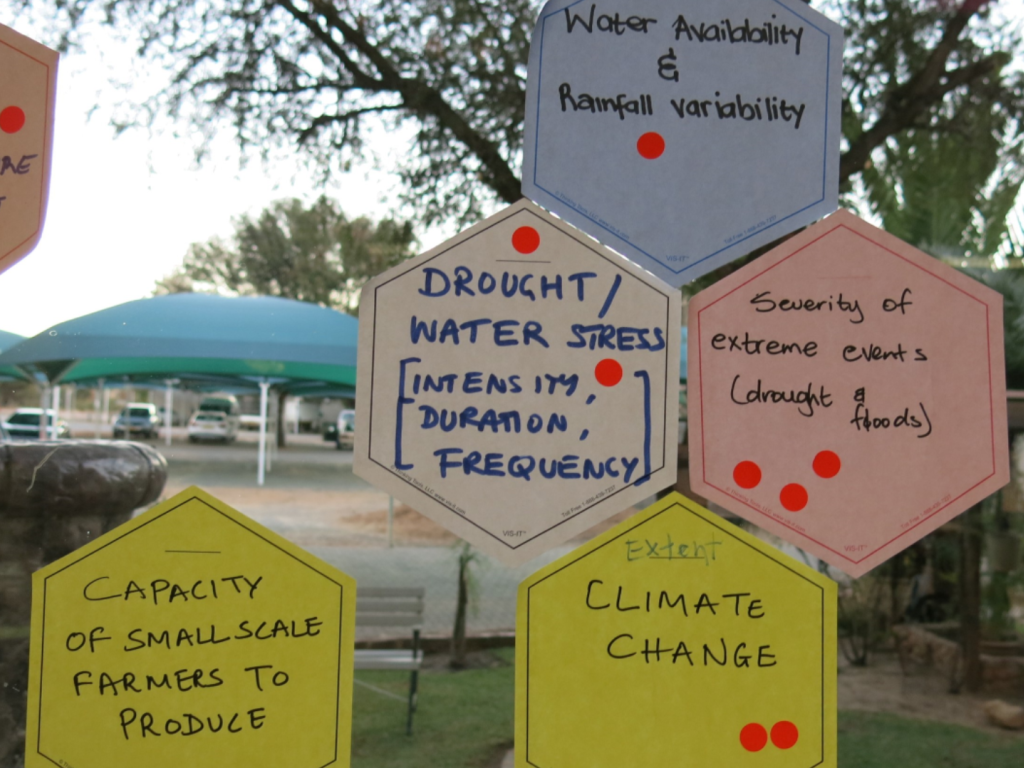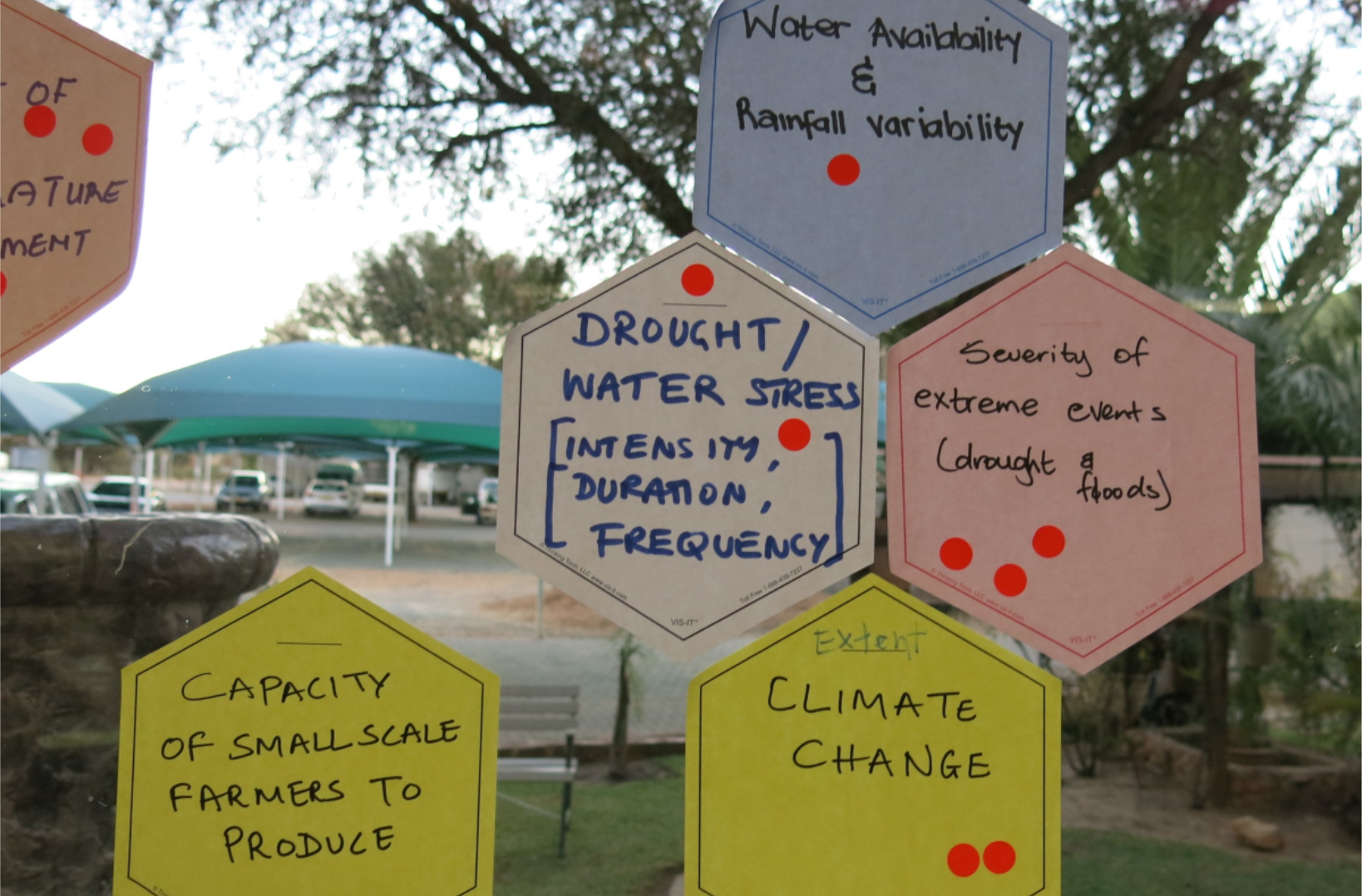Adapting TSP for the ASSAR context

By Karen Goldberg, Senior Associate at Reos Partners

We are almost at the end of ASSAR and TSPs have now been completed in West Africa, India and Southern Africa. It is timely to begin to take stock. And in doing so, it might be useful to remind ourselves of the origins of TSP and the creativity and good will that has gone into experimenting with and adapting the process for the purposes and context of ASSAR.
TSP was developed by Adam Kahane1, one of the founders of Reos Partners. It is a form of scenario planning that took the rigour and creativity of this methodology as it was being used at Royal Dutch/Shell and implemented it in 1991-92 in the context of South Africa during a period of high instability and volatility, and where the country faced an uncertain future. The approach was further honed through a number of other initiatives focusing on peace (e.g. Destino Columbia, 1996-1997, which aimed to explore possible pathways out of their decades-long internal conflict; and Vision Guatemala which aimed to rebuild the social fabric and implement Guatemala’s 1996 Peace Accord after more than 35 years of civil war). This approach was a means to bring together a group of key, diverse and influential actors, all of whom thought the situation at the time was unstable, unsustainable or untenable, and who knew that they were unable to change the situation on their own. While these actors were too polarised in their positions to commit to collective action, they were all willing to come together to create stories of the future about what could happen.
Over the years, TSP has been used in a variety of contexts (including food, land reform, health, democracy, education, health), but mostly at a national or regional level. And most often a champion from the system itself has approached Reos Partners to undertake the process.

ASSAR presented an opportunity for us at Reos Partners to try out TSP in a very different context. Some of the core differences were that it was built into the proposal submission as one of the main stakeholder engagement tools to be implemented in all of the ASSAR regions (which meant the regions themselves weren’t eliciting the approach), and was likely to be implemented at a local or district level, rather than at a national level. The resources allocated to this component were constrained, so ASSAR and Reos Partners needed to innovate the process. Reos Partners agreed to play a capacity building role (i.e. capacitating the regional leads to take on a lot of the preparation of the TSP processes) and limit our main input to the design and facilitation of the workshops and provide guidance to the scenario writing process.
|
The TSP workshops helped stakeholders to question their current understanding of problems and their role in being part of solutions. Shifts in thinking concerned a heightened awareness of the need to build trusting relationships in order to be more open to doing things differently. |
Teresa Perez, research fellow at the University of Cape Town, has already done a significant amount of reflection and analysis on the value and impact of the TSP process within ASSAR, and we will have an opportunity to harvest our collective learnings before the completion of the entire project. That being said, there are two insights that stand out for me at this stage. There were participants in all three regions (which are all contextually and culturally very different) who found the process valuable. For example, the workshops helped stakeholders to question their current understanding of problems and their role in being part of solutions. Shifts in thinking concerned a heightened awareness of the need to build trusting relationships in order to be more open to doing things differently. What this tells me is that 1) the approach is indeed potentially suitable and relevant for a wide range of contexts and scales; and 2) that a more discrete TSP process can still have impact and relevance.

There is a great deal that we still have to learn about how to adapt the methodology in context- and resource-constrained situations (in particular, the time and effort of developing and producing scenarios as communication outcomes), but we would like to commend ASSAR and the regional teams for taking the risk, and for forging relationships and trust with a diverse group across regions. And in so doing, finding innovative and creative ways of successfully delivering TSPs in their regions.
This article first appeared in the March 2018 ASSAR Spotlight
1 See Adam Kahane, "Transformative Scenario Planning: Working Together to Change the Future" (Oakland: Berrett-Koehler, 2012).